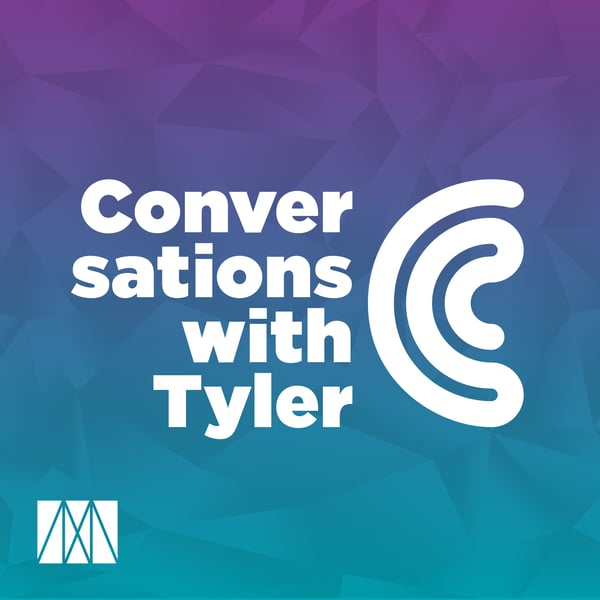Ed Boyden on Minding your Brain
Conversations with Tyler
Conversations with Tyler
4.8 • 2.4K Ratings
🗓️ 10 April 2019
⏱️ 62 minutes
🧾️ Download transcript
Summary
Ed Boyden builds the tools and technologies that help researchers think about and treat the brain, an organ we still know surprisingly little about. When it comes to how our brains make decisions, form emotions, and exhibit consciousness, there is still a lot we can learn.
But just as fascinating as the tools Boyden and his team build is the way in which they build them. Boyden employs a number of methods to design more useful tools, such as thinking backwards from the problem, hiring eclectic talent, practicing a particular type of meditation, waking long before dawn, or just trying the opposite of what’s already been attempted.
Would emulating the brain require emulating the entire body? Is consciousness fundamental to the universe, or is it actually just an illusion? Does a certain disharmony in thought lead to creativity? Why don’t people feel comfortable talking about their brains? And why is it so hard for us to be empathetic with one another? Listen to this engaging and brain-stimulating conversation with Tyler to hear his perspective.
Read a full transcript enhanced with helpful links.
Recorded February 5th, 2019
Other ways to connect
- Follow us on Twitter and Instagram
- Follow Tyler on Twitter
- Follow Ed on Twitter
- Email us: [email protected]
- Subscribe at our newsletter page to have the latest Conversations with Tyler news sent straight to your inbox.
Transcript
Click on a timestamp to play from that location
| 0:00.0 | Conversations with Tyler is produced by the Mercatus Center at George Mason University, |
| 0:08.4 | bridging the gap between academic ideas and real-world problems. |
| 0:12.6 | Learn more at mercatis.org. |
| 0:15.2 | And for more conversations, including videos, transcripts, and upcoming dates, visit |
| 0:20.4 | ConversationsWithT Tyler.com. |
| 0:30.8 | I'm here today with Ed Boyden, who is a famous neuroscientist at MIT. |
| 0:35.4 | There is much more to say about him, but he'll do some of that explaining himself. |
| 0:39.6 | Before we get to what you've done, let me just toss out a few general questions that |
| 0:43.2 | the audience might be interested in. |
| 0:45.4 | If I were to read all of the good popular books on brain science, what is it that I'm still |
| 0:49.9 | most likely not to understand? |
| 0:52.0 | I think something that people don't appreciate is how little we know about the brain. |
| 0:55.9 | So if you think about brain diseases, like Alzheimer's and Parkinson's and epilepsy, |
| 1:00.5 | basically none of these can be cured. |
| 1:02.6 | And the treatments, if they do exist, are very partial and have a lot of side effects. |
| 1:06.7 | And similarly, we don't actually have theories, detailed knowledge enough to make predictive, |
| 1:12.0 | interesting models, for example, of how we form emotions, of how we make decisions. |
| 1:18.0 | So I think that I sometimes have jokingly say we should write a book about the brain |
| 1:21.7 | called ignorance, what we don't know about the brain. |
| 1:24.5 | Not sure how many copies would sell though. |
| 1:26.1 | If I think about mental illness, it seems that it's hard to find chemical correlates |
| 1:30.5 | for mind states that would normally be counted as mentally ill. |
... |
Please login to see the full transcript.
Disclaimer: The podcast and artwork embedded on this page are from Conversations with Tyler, and are the property of its owner and not affiliated with or endorsed by Tapesearch.
Generated transcripts are the property of Conversations with Tyler and are distributed freely under the Fair Use doctrine. Transcripts generated by Tapesearch are not guaranteed to be accurate.
Copyright © Tapesearch 2025.

